A well-crafted resume is your first step to landing the healthcare job you want. The healthcare industry is constantly growing, so there are plenty of opportunities for those with relevant skills and experience. A well-written resume is the best way to demonstrate why you’re the perfect candidate for a given role. Cultivating a solid outline isn’t easy, especially if this is your first time writing one. Suppose you struggle to build a professional resume highlighting your unique skills and experiences. In that case, it may be time to reach out to a hiring manager for assistance or explore other resources such as online tutorials or in-person workshops. An effective resume should concisely convey what roles you are interested in, what skills and experience you bring to the table, and any other information that would make you stand out from other candidates. This article will provide insight into how to create an effective healthcare educator resume and give examples of different resumes so that you can see some options that might be right for you. Let’s get started!
Health Educator Resume Example

Download This Health Educator Resume as PDF
Health promotion specialist Resume Example
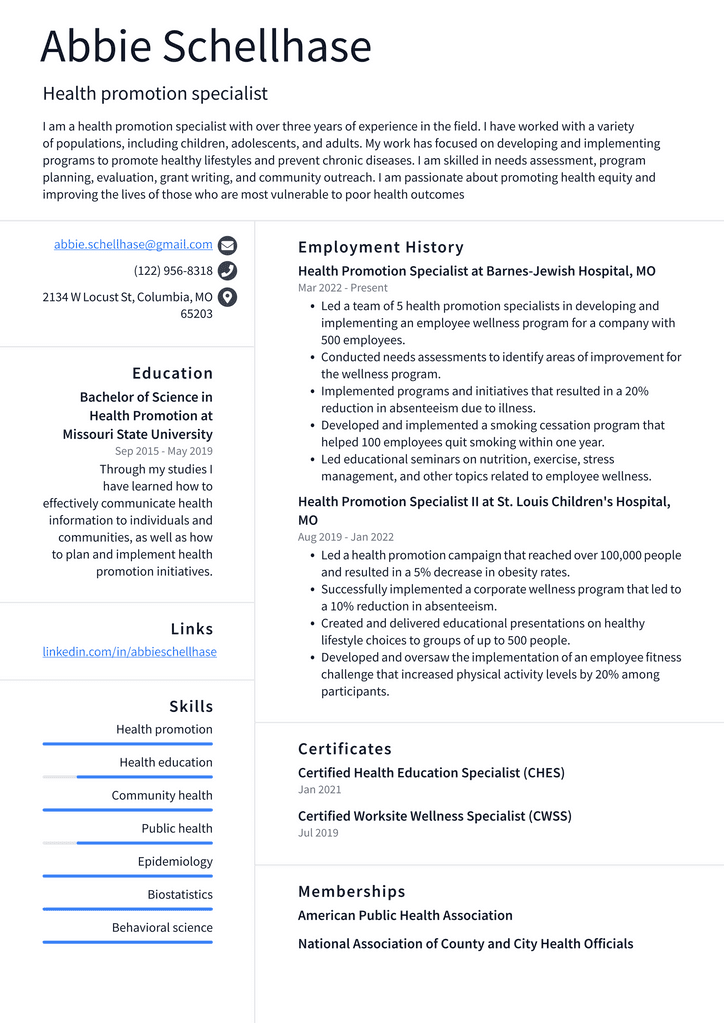
Download This Health promotion specialist Resume as PDF
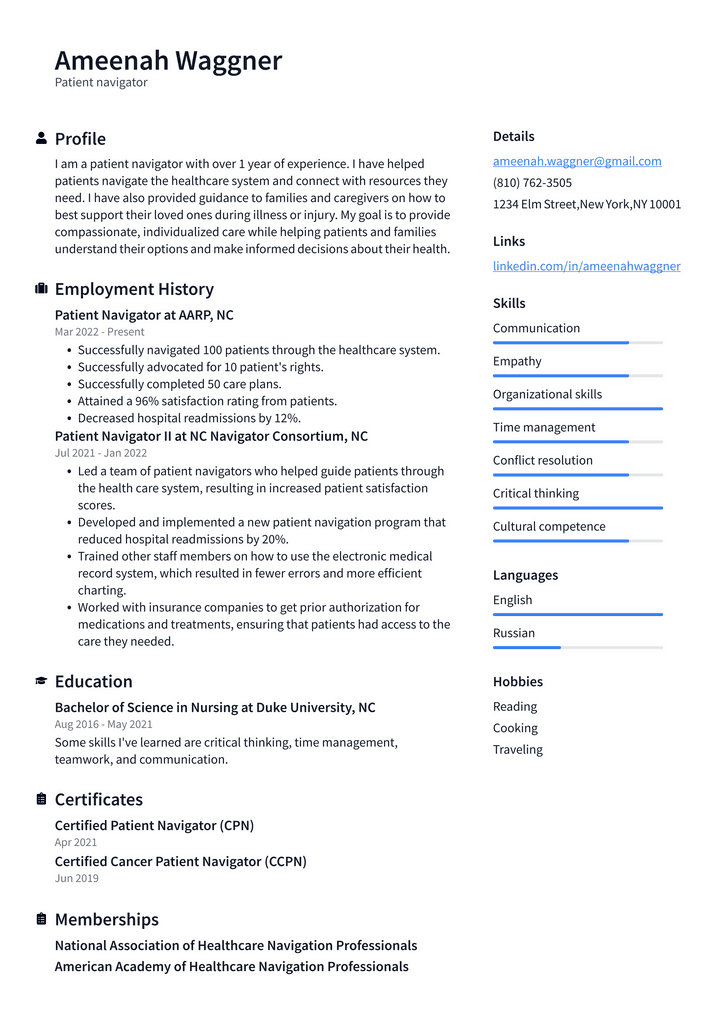
Download This Patient navigator Resume as PDF
Community health worker Resume Example
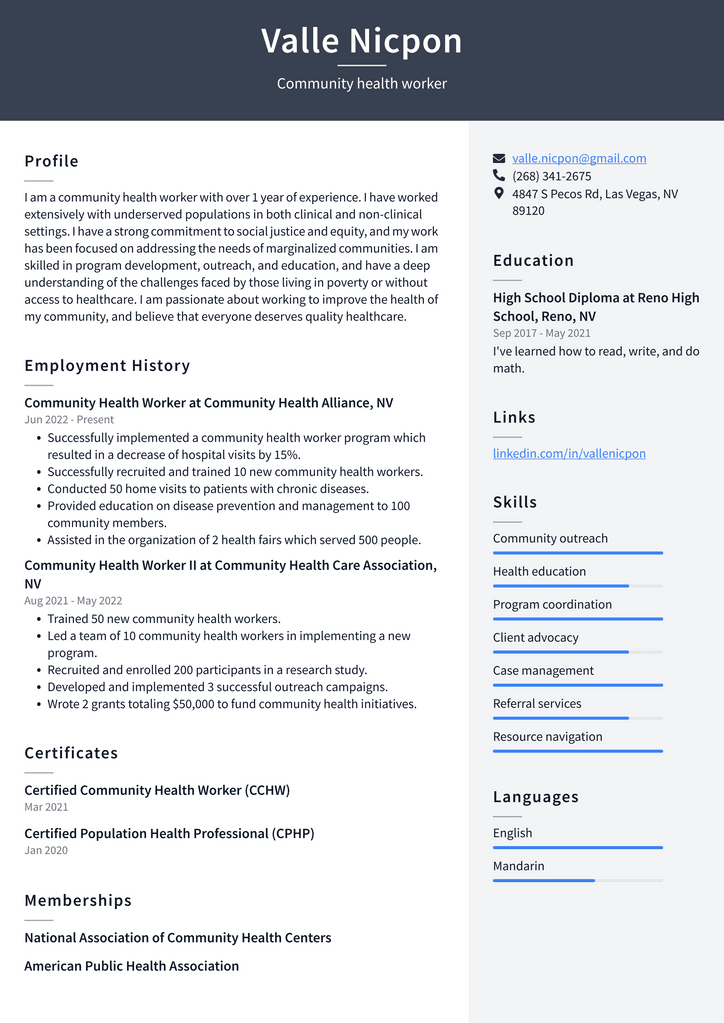
Download This Community health worker Resume as PDF
Wellness coach Resume Example
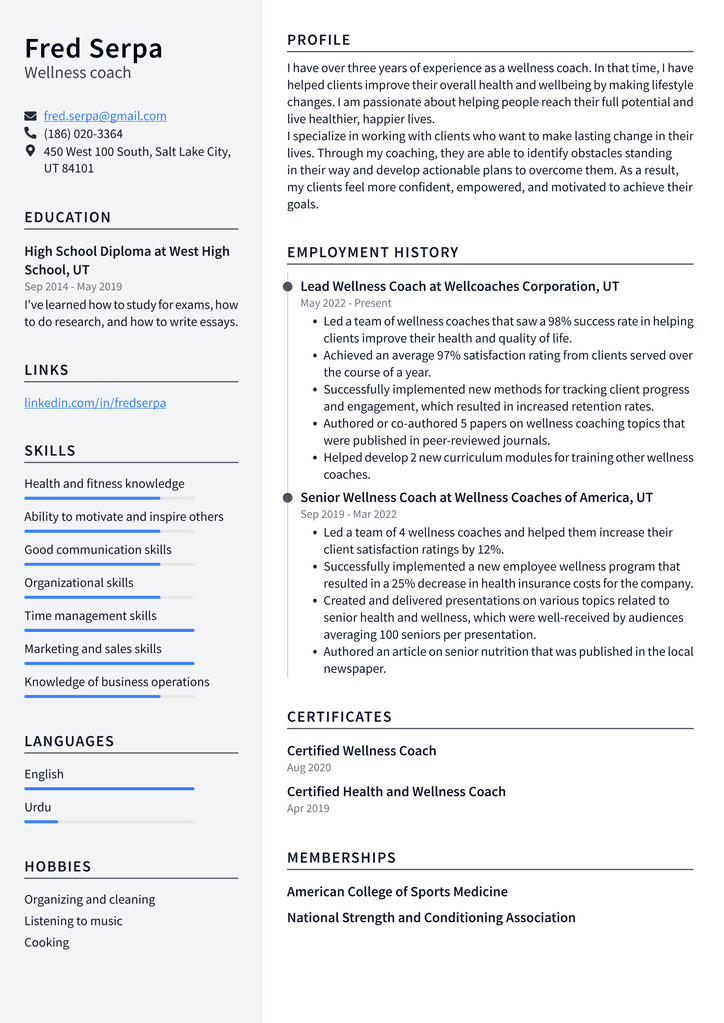
Download This Wellness coach Resume as PDF
Community outreach worker Resume Example
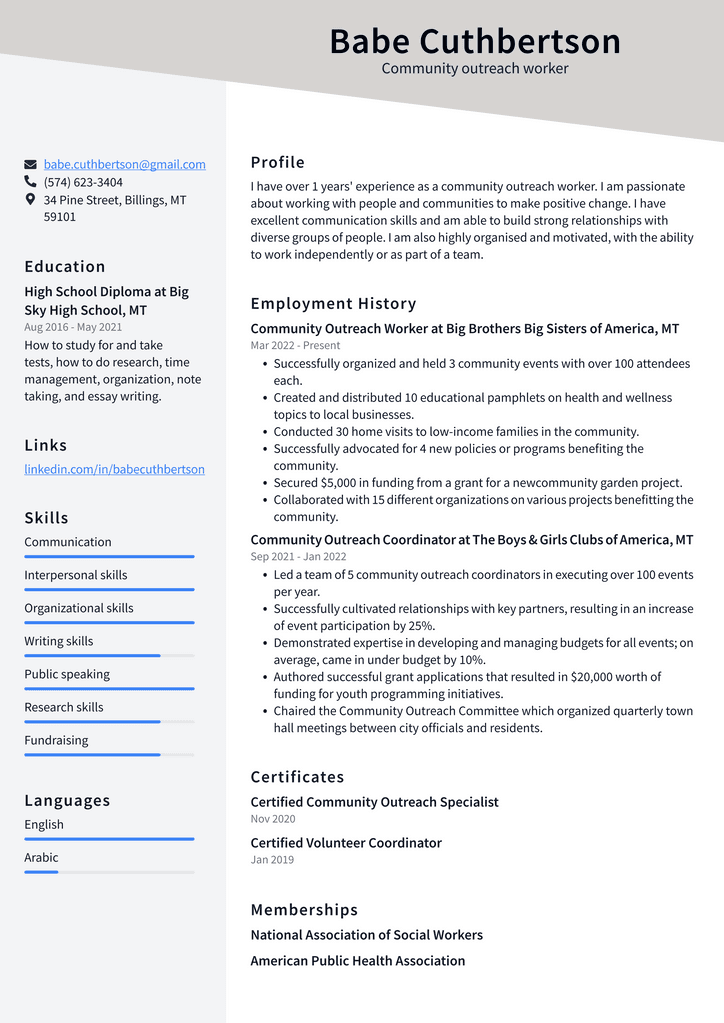
Download This Community outreach worker Resume as PDF
Health educator Resume Example
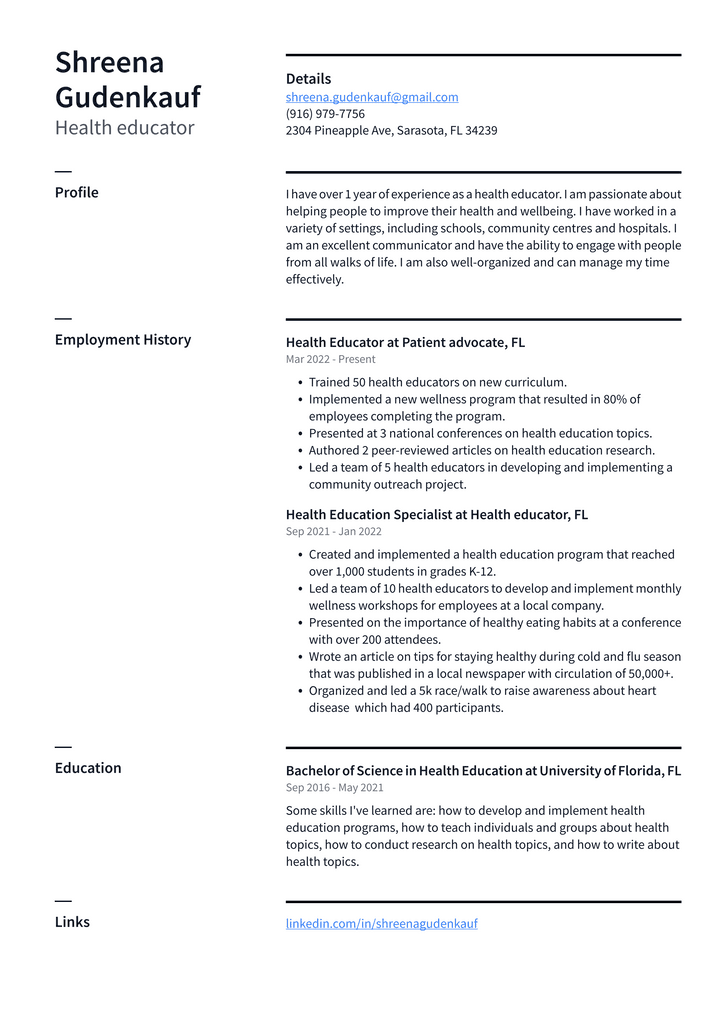
Download This Health educator Resume as PDF
What to Include in a Healthcare Educator Resume
Before diving into how to create a winning resume, it is essential to know what to include in a healthcare educator’s resume. A few key components are vital to any resume, regardless of industry or profession. – Resume Header – Make sure your resume includes a header with your name and contact information. This should include your full name, phone number, and email address. – Resume Objective – This is optional, but you may wish to include an objective statement that briefly explains why you are pursuing a career in healthcare. – Education – Include the name of the institution, your degree, and graduation date. – Experience – Include the names of companies you have worked for and the roles you held while employed there. – Skills – You can either include skills in a separate section or weave them into the description of each position.
Build a Strong Foundation
An effective resume is built on a foundation of solid and relevant skills. Before you can begin writing a resume, you must first determine which skills you want to highlight on your resume. You can do this in a few different ways, such as creating a skills inventory or reading job postings to determine skills in demand. Once you’ve decided which skills you want to highlight, incorporate them into your resume. This will ensure that your resume reflects your skill set, making it much more robust. If you’re struggling to determine which skills to highlight on your resume, you can also consider including a skills summary to provide a brief overview of your skills.
Showcase Relevant Skills
Once you’ve determined which skills you want to highlight on your resume, you must then weave them into your resume. Start by including each skill in the appropriate section. For example, if you are applying to an entry-level position, it may be appropriate to have skills you gained during college. On the other hand, it may be helpful to list relevant skills gained through previous employment if you’re applying for a higher-level role. Next, make sure to weave your skills throughout your resume. Instead of listing skills in a section at the end, incorporate them into the description of each position you’ve held. For example, if you owned a position as a pharmacy technician, be sure to weave the skills required for this position into the job description. This will make it clear to hiring managers that you have the skills necessary for the job while keeping the report concise.
Demonstrate Expertise
There are many ways to demonstrate expertise on a resume. One of the easiest ways to do this is by including the dates of your employment at various companies or organizations. If you’ve held a position for a few years, potential employers will likely view this positively as it demonstrates longevity at your current job. It is okay if your experience is limited. If you are new to the field, try to focus on the skills you gained while employed at your previous jobs. The most important thing is ensuring that your resume demonstrates the expertise required for the job you are applying for.
Provide Position Information
Although not all industries require it, it is generally a good idea to include a brief description of your job titles. This can be helpful for someone who doesn’t work in your field or may be unfamiliar with healthcare. For example, a healthcare educator’s resume should include a brief description of the position. This will give hiring managers more information about your experience and help distinguish you from other candidates. You can do this by including a short description of the type of position you held, the years in which you had the job, and any other notable information. Be sure to write these descriptions in a way that is professional yet engaging.
Conclusion
Your resume is the most critical tool in your job search. A poorly written resume will likely result in fewer job opportunities, so it is essential to take the time to build a robust and compelling resume. You can do this by focusing on your skills and interests, weaving relevant skills into each section of your resume, and providing detailed position information. It is also important to remember that every resume is different and that there is no one correct way to write a resume. However, many other online guides and templates can help you write a winning resume, so don’t be afraid to experiment with different formats and formats until you find one that works for you.